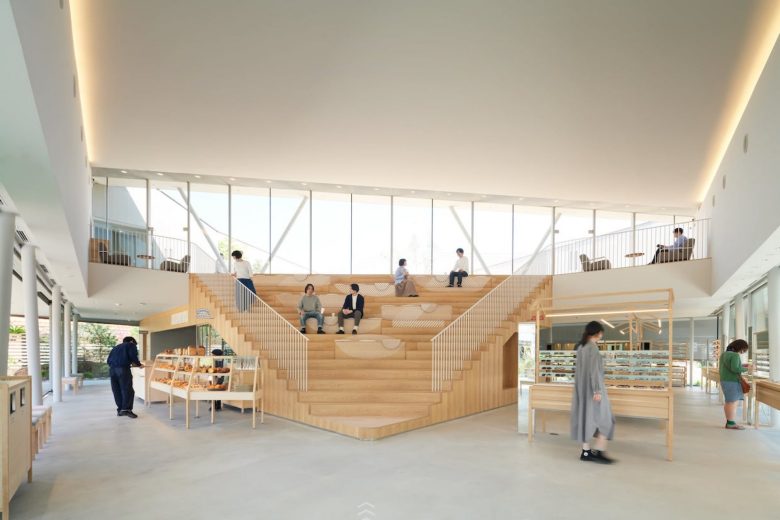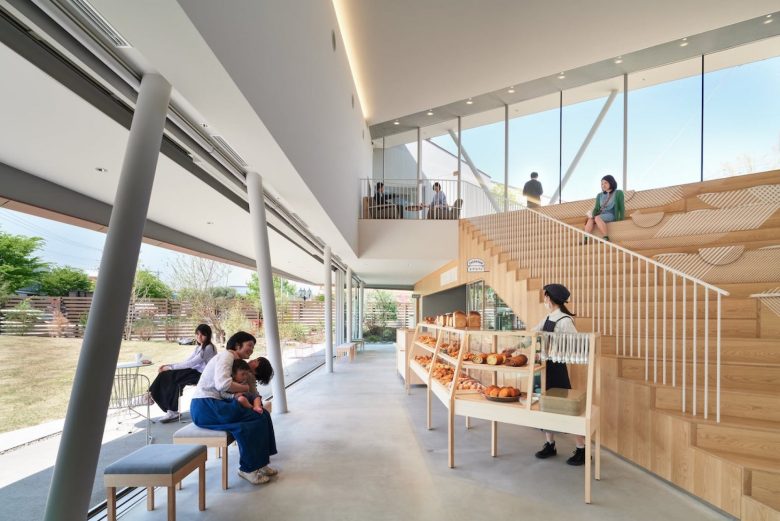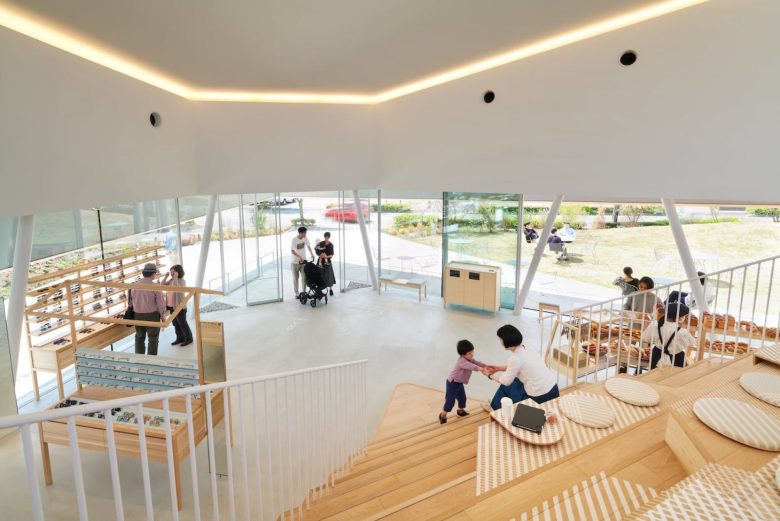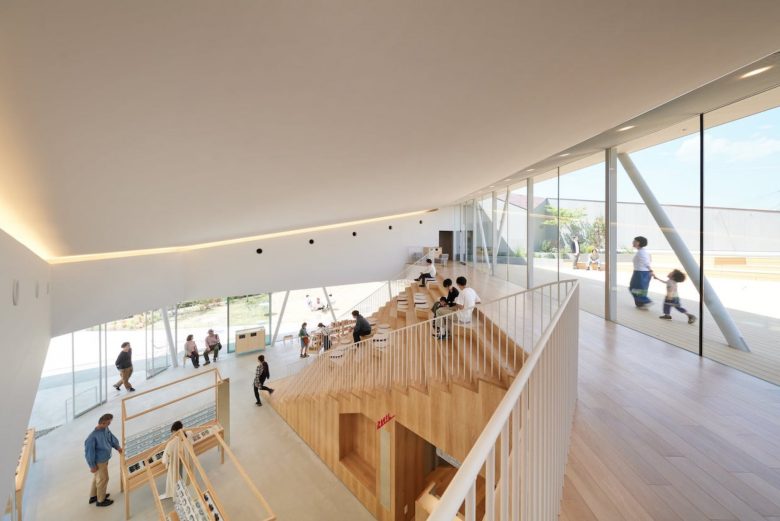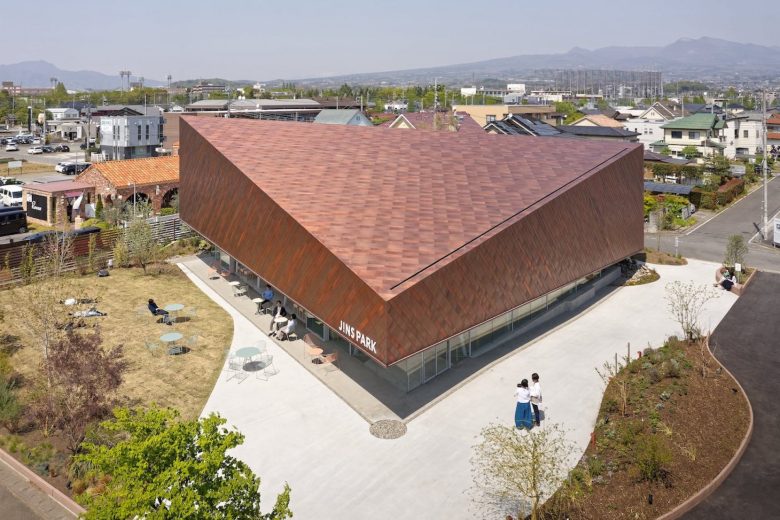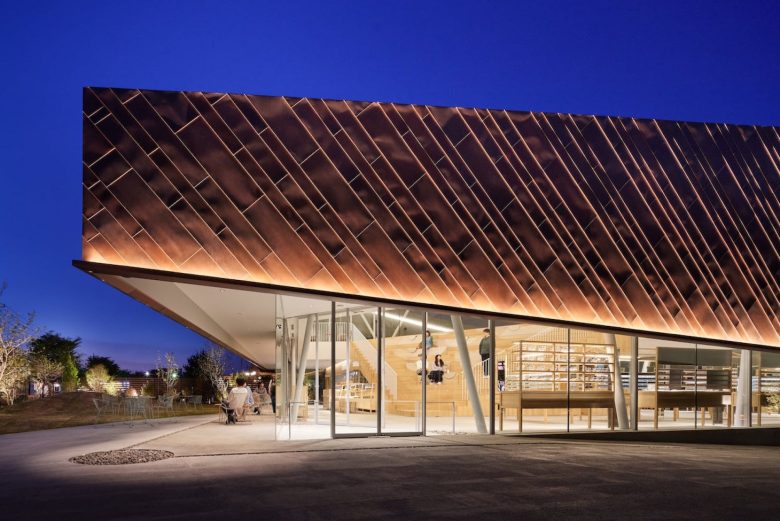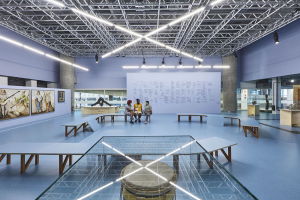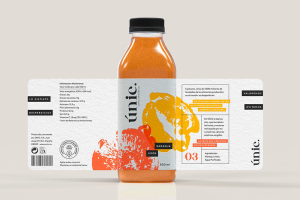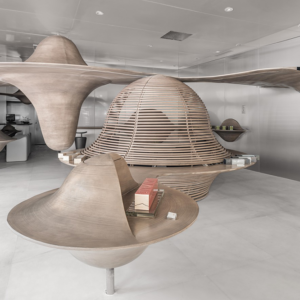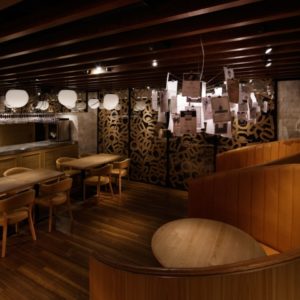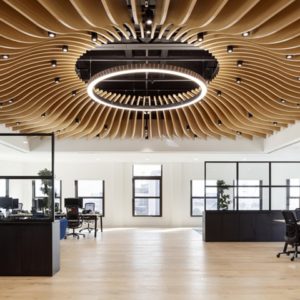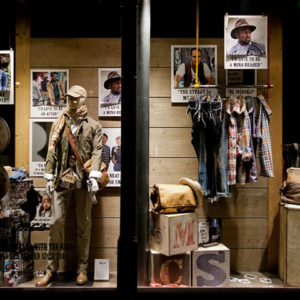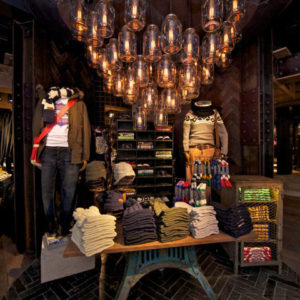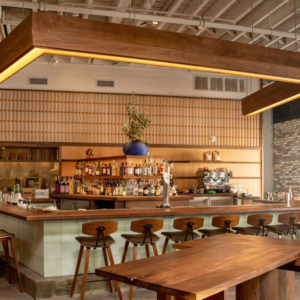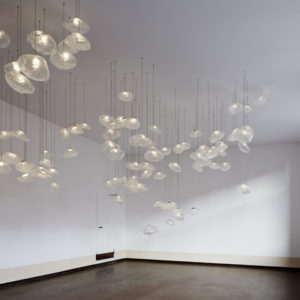
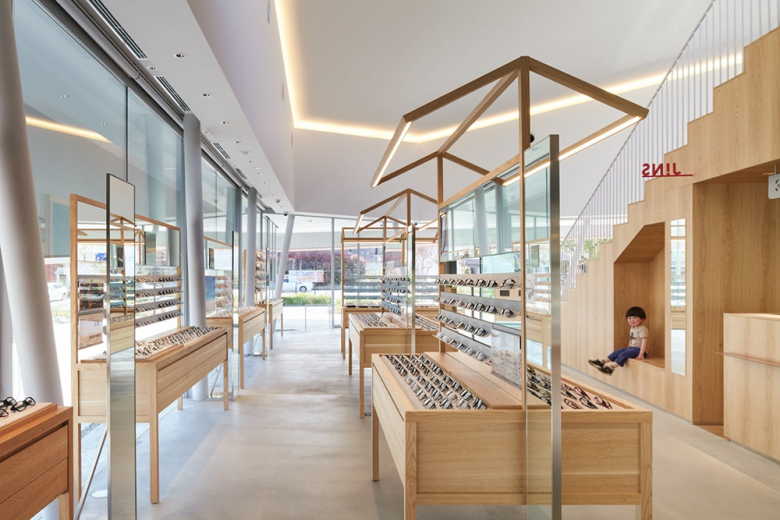
Optical retailer Jins is revitalizing its bricks-and-mortar offer with the integration of a café-bakery and a play space at its Maebashi, Japan store.
Key features
Japanese eyewear brand Jins took a multi-typology approach for its store in Maebashi City, the brand’s hometown. Eager to create a space centred around community, the team integrated a bakery-café, play area, garden, and retail space into the trapezoid-shaped building, called Jins Park. To activate the space beyond its core retail function, Yuko Nagayama and Associates created a park-like space where families can bring their children, even if they’re not buying glasses. The parking lot was moved from its usual place to the back of the store to accommodate a terrace with an abundant garden. Windows wrap around the bottom two of the building’s three sides showcasing the activity inside and creating a connection to the outdoors.
A bakery-café and a retail space with rows of glasses displays are found on the ground floor where a tiered staircase originates from. It doubles as seating for café-goers or shoppers looking for a break originates from and leads to a play space for children and large glass doors which provide access to an outdoor terrace. The crossover between retail and hospitality is intended to serve as a community space and activate a (positive) emotional experience for those that enter. ‘It’s not just a store, but an amalgam of an eyewear store, a bakery and an event space,’ Hitoshi Tanaka, founder and CEO Jins, previously said about the Maebashi store to Frame. ‘At our future stores, local families will gather, learn and work with their hands to enrich their own community.’
Frame’s take
The prominence of e-commerce means that in-person retail outposts must go beyond the transactional aspect of shopping and find creative ways to grow and maintain foot traffic. One path that retailers have taken is integrating hospitality into their stores. ‘Restaurants can remain open for longer than their host retailers, can draw a wider pool of potential customers through the door and keep them engaged for longer, and can turn browsing into purchases via exposure to products,’ we wrote about the hybrid retail-hospitality approach being adopted by many post-pandemic retailers as a way of garnering more foot traffic.
While non-retail activities may seem to be distraction from the ultimate goal of having clients make a purchase, the combination of typologies allows retailers like Jins to benefit from customers’ lingering and increased brand loyalty through immersion.
Architect: Yuko Nagayama and Associates
Photography by Daici AnoTomoyuki Kusunose
